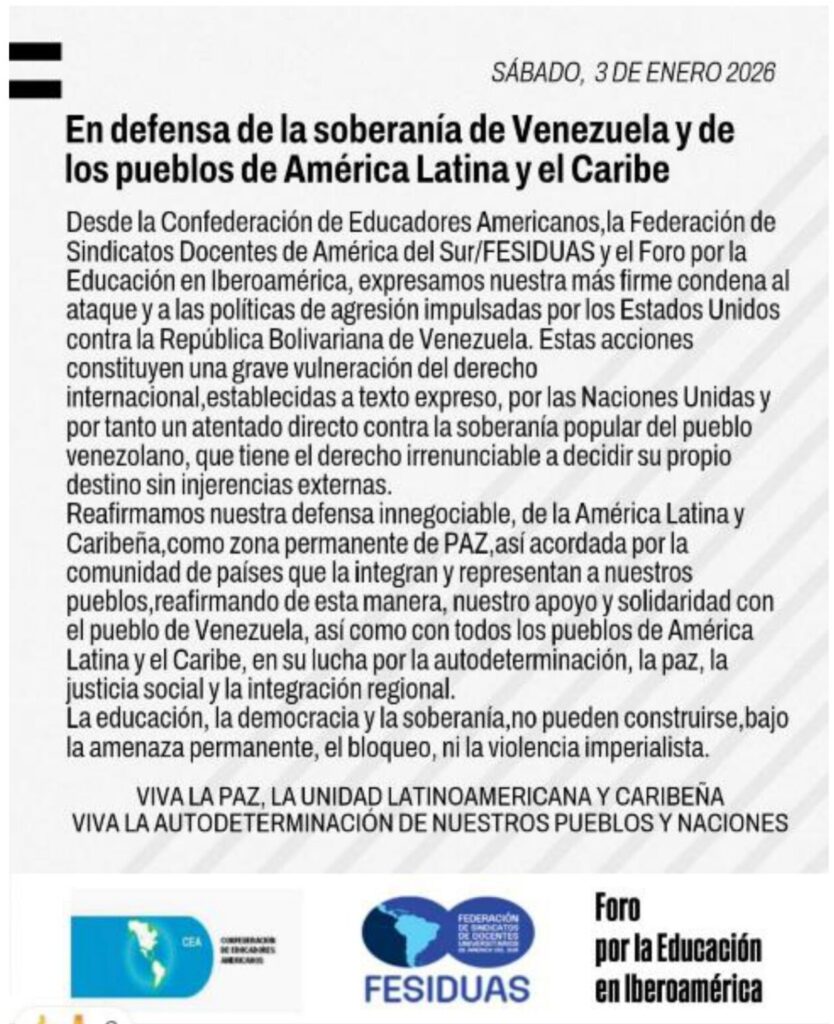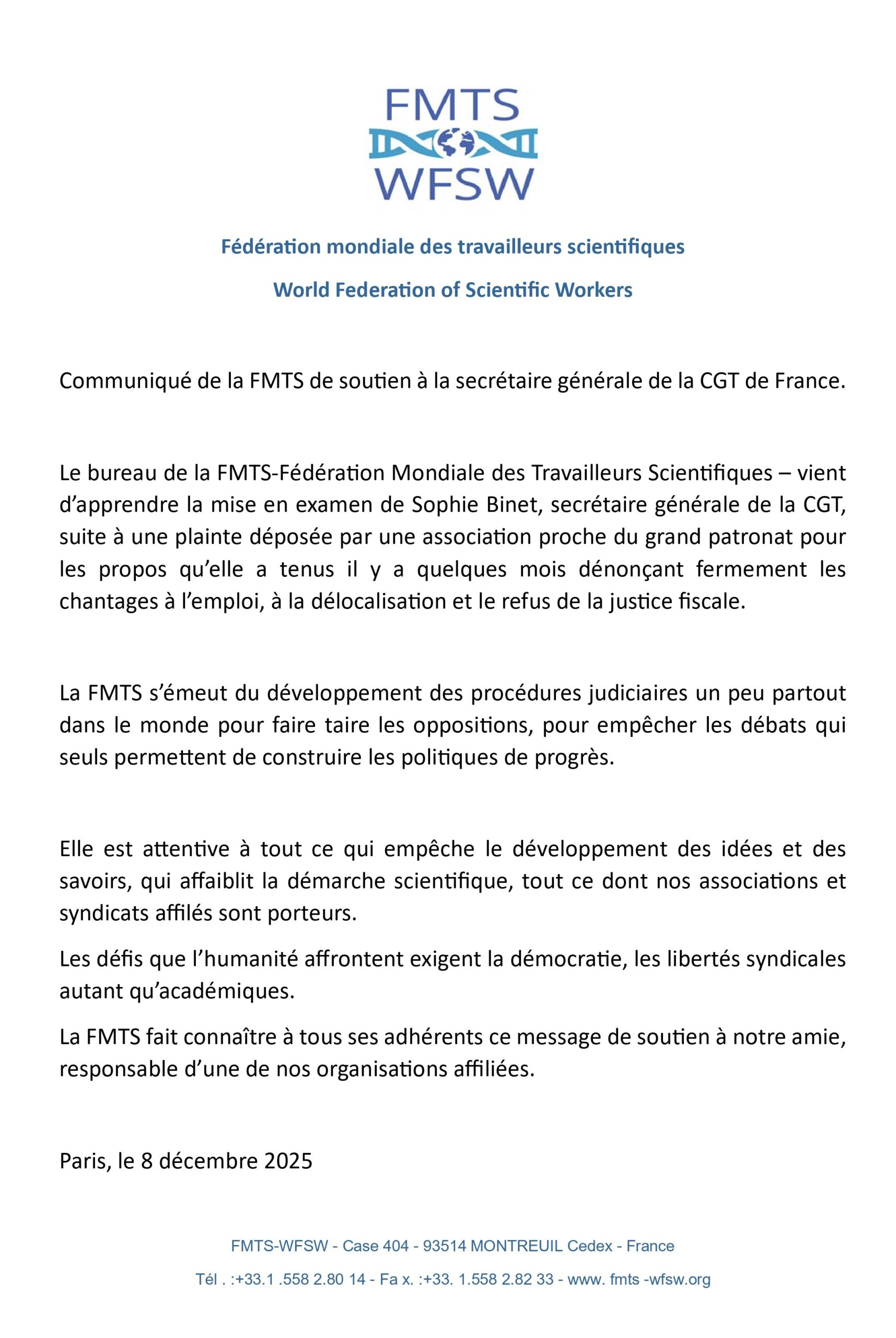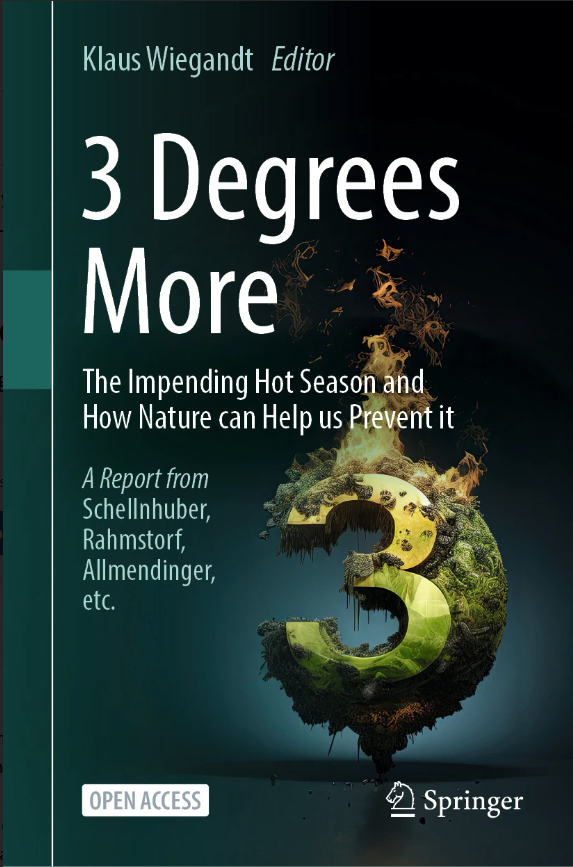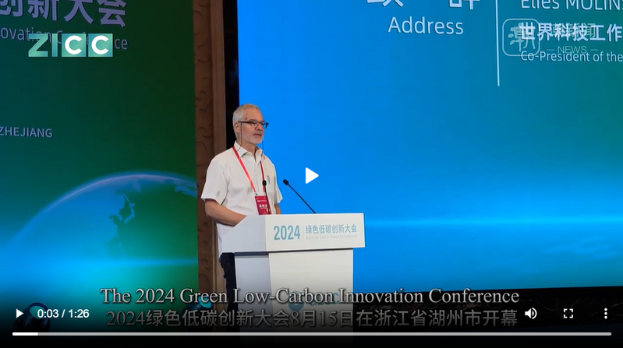94th Executive Council – ÉVORA / PORTUGAL
WORLD FEDERATION OF SCIENTIFIC WORKERS
94TH EXECUTIVE COUNCIL
ÉVORA 2023
At the invitation of the three Portuguese organisations affiliated to the World Federation – ABIC, FENPROF and OTC[i] – the 94th Meeting of the Executive Council of the World Federation of Scientific Workers (WFSW) was held in Évora from 2 to 7 July. The Executive Council is the governing body of the Federation between General Assemblies, which take place every 4 years. More than half a hundred participants from four continents and a dozen nationalities took part in the work of the Executive Council and attended or spoke at the Symposium included in the program. The Federation, born in 1946, remains true to its origins as a forum for debate where scientific workers, regardless of their origin or personal convictions, freely express their vision of the major and minor problems affecting their activities, considering the specific conditions of their country of origin or the institution where they work. They express their vision of the paths that science and technology are taking, current trends and the future, considering the impact that the latter necessarily have on society. The Federation and these meetings are thus an instrument aimed at deepening and broadening cooperative relations between scientific workers taken individually but above all between associations that represent them.
The work of the meeting, which included, as usual, a symposium open to the public, took place on the premises of the “Luis António Verney” University College of the University of Évora, creditor of the recognition of the organisers.[ii]
THE SYMPOSIUM
The subject of the symposium, which clearly reflects the nature of the WFSW’s concerns and orientation, was “Scientific cooperation as driver for peace and sustainable development”. The brief summary included in the symposium announcement, previously distributed, clarifies what was in mind in the following terms:
“Science and Technology are crucial instruments to reach the UN’s Sustainable Development Goals. That depends to a large extent on finding the correct answers to questions such as: social status, living and working conditions of scientific workers, including job stability; their participation in decision-making and contribution to democracy; funding amount and mechanisms; academic freedom and autonomy; among others. And, of course, the ability to interact and cooperate with fellow scientists all over the world — an aspect seriously affected by geopolitical instability.”
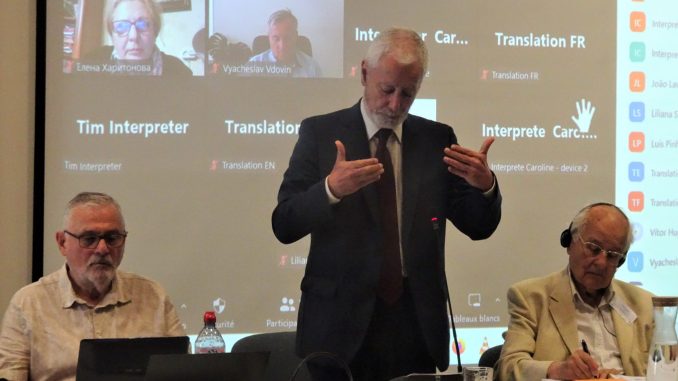 The Symposium was opened by Prof António Sampaio da Nóvoa, from the Institute of Education of the University of Lisbon, Rector Emeritus of that University and member of Portugal’s Council of State. The speech he gave at the time that was a main highlight of the meeting, as a number of those present emphasised, can be read here: OPENING SPEECH: Prof António Sampaio da Nóvoa
The Symposium was opened by Prof António Sampaio da Nóvoa, from the Institute of Education of the University of Lisbon, Rector Emeritus of that University and member of Portugal’s Council of State. The speech he gave at the time that was a main highlight of the meeting, as a number of those present emphasised, can be read here: OPENING SPEECH: Prof António Sampaio da Nóvoa
One can see in the Program that the Symposium was divided into two Round Tables. The first dealt with the topic of “Scientific cooperation and peace in an unstable geopolitical environment”. The second looked at the ”Impact of researchers’ working conditions on the path towards sustainable development”.
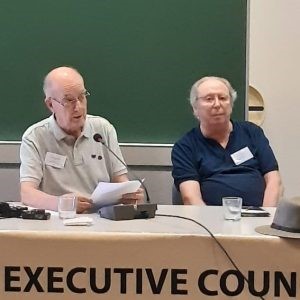 In the first Round Table, coordinated by Prof. Mehdi Lahlou, of the University of Rabat, Morocco, the floor was given to the following speakers: Dina Bacalexi (CNRS, France); Frederico Carvalho (Univ. of Lisbon and OTC); Luís Moniz Pereira (Univ. Nova de Lisboa and OTC) and, remotely, Elena Kharatinova (Institute of African Studies, Russian Academy of Sciences). The text of Frederico Carvalho’s contribution can be read here: Degrowth for survival.
In the first Round Table, coordinated by Prof. Mehdi Lahlou, of the University of Rabat, Morocco, the floor was given to the following speakers: Dina Bacalexi (CNRS, France); Frederico Carvalho (Univ. of Lisbon and OTC); Luís Moniz Pereira (Univ. Nova de Lisboa and OTC) and, remotely, Elena Kharatinova (Institute of African Studies, Russian Academy of Sciences). The text of Frederico Carvalho’s contribution can be read here: Degrowth for survival.
The second Round Table, coordinated by Prof. André Carmo (Univ. of Évora and FENPROF), featured the following speakers: Marcelo Magnasco (Univ. Nacional del Arte, Argentina), Sergi Maicas (Univ. of Valencia, Spain), Florence Mouchet (Univ. of Toulouse, France), Carolina Rocha (Univ. of Coimbra and ABIC), Rui Salgado (Univ. of Évora and OTC), and also, remotely, Salma Sylla (Univ. Cheikh Anta Diop, Senegal) and Vyacheslav Vdovin (Institute of Applied Physics, Russian Academy of Sciences).
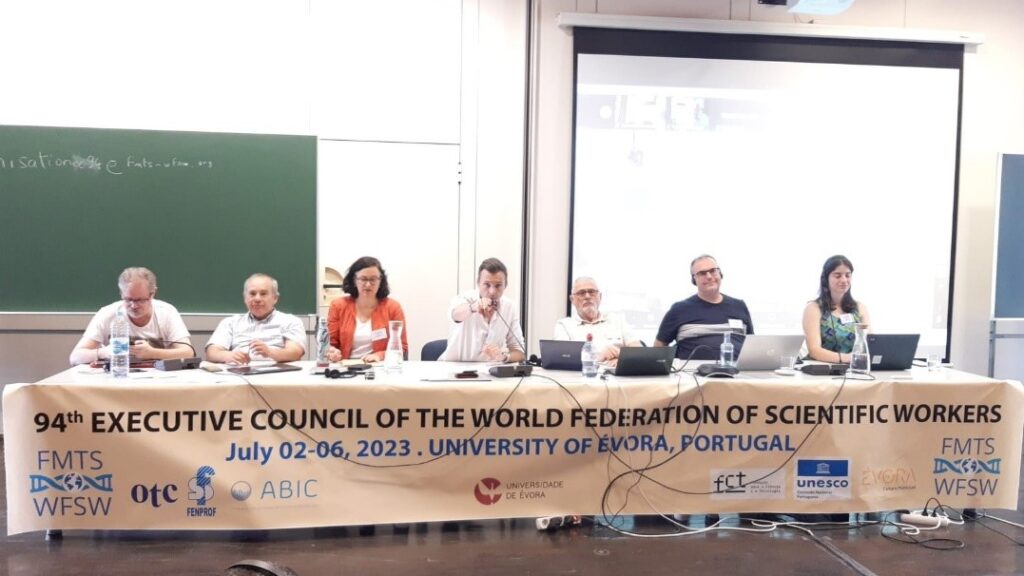
Each of the Round Tables was followed by a debate with the audience.

THE WORKING GROUPS
It is not possible here to describe in detail the content and results of the various sessions – four in number – during which the work of the 94th Executive Council unfolded over the three days dedicated to them[iii].
Special reference should however be made to the thematic Working Groups that are part of the Federation’s organisational chart. The Groups deal with highly topical issues, whether broader or more specialized: “Peace, Disarmament and Cooperation” (Group 1); “Sustainable Development”, which includes the issues of climate change, energy, water and the oceans (Group 2); “Working Conditions and the Status of Scientific Workers” (Group 3); “Financing Research in Africa” (Group 4); “Women in Science” (Group 5). These have recently been joined by a non-permanent group dealing with the Rules of Procedure of the World Federation (Group 6). Finally, there is a specialised sector for Communication and Social Networks (Group 7).
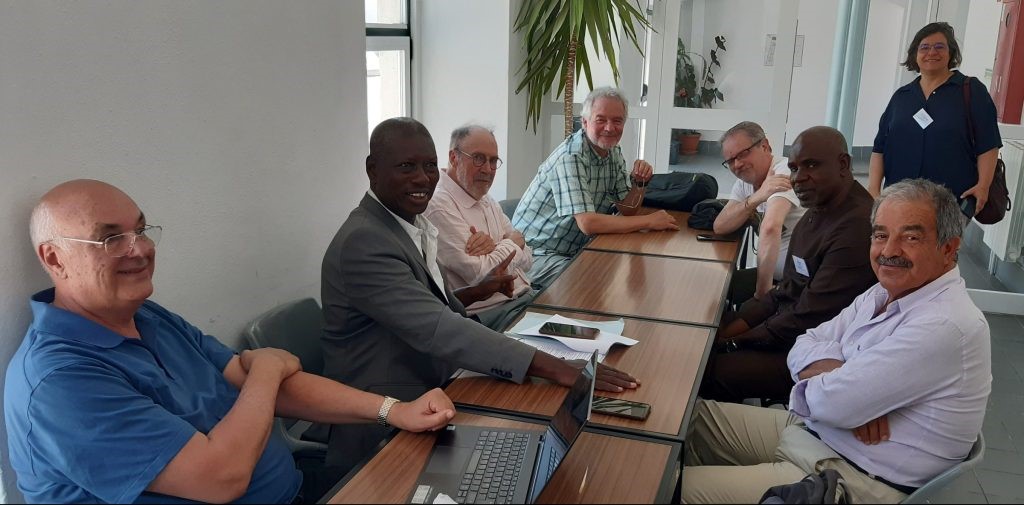
The groups organise themselves freely, define their work projects and are open to members of any of the organisations affiliated to the World Federation. OTC is represented in Groups 1, 3 and 7. In the latter – the Communication Sector – we highlight the important work carried out throughout the year by OTC Board member Joana Santos, who was invited by the WFSW to join the Sector.
Group 1 – “Peace, Disarmament and Cooperation” is coordinated by Frederico Carvalho; Group 3 – “Working Conditions and the Status of Scientific Workers” is coordinated by André Carmo (FENPROF). The written contributions presented by Frederico Carvalho in Group 1 and André Carmo in Group 3 can be read here and here, respectively.

The WFSW Executive Council meeting and the Symposium that was part of it, as well as the moments of conviviality that the meeting provided, lived up to our best expectations. This is shown by the words of recognition addressed to us by members of the Federation’s governing bodies and a good number of those who were present in Évora that week in July, nationals from various backgrounds including Portuguese colleagues.
It should be noted that the success of the meeting in Évora was primarily due to the remarkable work carried out by the national organising committee that included members of the three above mentioned national associations affiliated to the World Federation, ABIC, FENPROF and OTC, and was also due to the support of various nature received, particularly from the University and the Municipality of Évora, to which we express our sincere thanks. As far as OTC is concerned, the commitment and hard work carried out locally by Maria Elmina Lopes, a member of OTC’s Board of Directors, was decisive to ensure the success of the project we undertook. It was a team effort in which the role of colleagues based in Lisbon, in particular Joana Santos, a member of the Board, should be highlighted. The welcome at Lisbon Airport on July 2d of foreign participants was assured by António Ferreira from ABIC and João Cruz from FENPROF.
On the technical side simultaneous interpretation, done remotely in English and French, the official languages of the World Federation, was provided by translators hired by the WFSW who were based in Paris. Translation equipment and local technical support was provided under contract with a local company. The dedicated collaboration of the university’s IT services was essential throughout this process, and therefore, they deserve a special thanks.
 The presence of OTC in the meeting’s opening session and, especially, the contributions made during the various working sessions of the Executive Council meeting as well as to the Symposium debates show that the association can give a valuable contribution to the WFSW as an affilliated member. Thus, Maria Elmina Lopes (OTC-Directorate) was called upon to preside over the opening ceremony of the meeting, sitting side by side with Prof. Clara Grácio, Director of the School of Science and Technology of the University of Évora, our associate and former member of the OTC’s Board of Direction, acting on behalf of the Rectoress of the University of Évora, who was absent abroad; Carlos Pinto de Sá, Mayor of Évora; Prof. Jean-Paul Lainé (France) and Prof. Elies Molins (Spain). co-Presidents of the World Federation.
The presence of OTC in the meeting’s opening session and, especially, the contributions made during the various working sessions of the Executive Council meeting as well as to the Symposium debates show that the association can give a valuable contribution to the WFSW as an affilliated member. Thus, Maria Elmina Lopes (OTC-Directorate) was called upon to preside over the opening ceremony of the meeting, sitting side by side with Prof. Clara Grácio, Director of the School of Science and Technology of the University of Évora, our associate and former member of the OTC’s Board of Direction, acting on behalf of the Rectoress of the University of Évora, who was absent abroad; Carlos Pinto de Sá, Mayor of Évora; Prof. Jean-Paul Lainé (France) and Prof. Elies Molins (Spain). co-Presidents of the World Federation.
Frederico Carvalho (OTC-Chairman of the Board) chaired the first working session of the Executive Board, alongside Cheikhou Sylla (Senegal) who acted as secretary.
The highlight of this first session was the Report of the Presidency, presented by Prof Jean-Paul Lainé, which can be read here: Exposé introductif au Conseil Exécutif d’Evora (FR).
Colleague Clara Grácio also chaired the Symposium’s opening session, with Jamal Sebbani, Secretary General of the WFSW (Morocco), as secretary; and André Jaeglé, a historic member and now President Emeritus of the World Federation. The Round Tables featured, as already mentioned, Luís Moniz Pereira, Professor Emeritus at the Universidade Nova de Lisboa, a member of the OTC’s governing bodies, Frederico Carvalho and Rui Salgado, Associate Professor with Aggregation and Director of the Institute for Research and Advanced Training at the University of Évora, our associate.
SOCIAL EVENTS
As usual in similar situations, the organisation tries to give the opportunity for participants get-together informally, which naturally helps to reconnect in a relaxed atmosphere and get to know old friends better, as well as making new ones. In Évora, the highlight of these convivia was the Symposium’s closing dinner, which was provided by the “Cantares de Évora” Choir Group. A mixed choir that has been in existence for more than four decades, which, as well as singing about the Alentejo, is also dedicated to promoting and publicising traditional Alentejo cuisine. The dinner took place at the Group’s headquarters located in the old cereal barns, in the historic centre of the city of Évora.

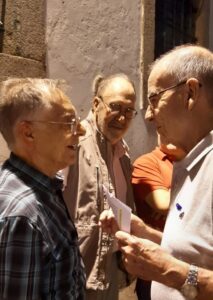 At the end of the dinner and after the Choir’s performance, there was a brief tribute to our colleague and friend João Cunha Serra, a teacher and trade unionist of exceptional merit. His work as a trade union activist and leader, linked to the Greater Lisbon Teachers’ Union and FENPROF, marked and still marks the younger generations committed to defending the public university and the living and working conditions of scientific workers. His connection, FENPROF’s connection, to the World Federation for over 20 years justifies the tribute that the current FMTC Presidency has chosen to pay him. OTC associated itself with the tribute by recalling the distant but very present years that followed the April Revolution, remembering that João Cunha Serra joined the OTC on January 26, 1975, at that time engaged in the fight to create a Scientific Research Career Statute. João Cunha Serra has never left the OTC and is now vice-president of the General Assembly.
At the end of the dinner and after the Choir’s performance, there was a brief tribute to our colleague and friend João Cunha Serra, a teacher and trade unionist of exceptional merit. His work as a trade union activist and leader, linked to the Greater Lisbon Teachers’ Union and FENPROF, marked and still marks the younger generations committed to defending the public university and the living and working conditions of scientific workers. His connection, FENPROF’s connection, to the World Federation for over 20 years justifies the tribute that the current FMTC Presidency has chosen to pay him. OTC associated itself with the tribute by recalling the distant but very present years that followed the April Revolution, remembering that João Cunha Serra joined the OTC on January 26, 1975, at that time engaged in the fight to create a Scientific Research Career Statute. João Cunha Serra has never left the OTC and is now vice-president of the General Assembly.
Finally, on the morning of Friday, July 7, at the initiative of the national organising committee of the Évora event, a visit was made to a research infrastructure at the University of Évora – the HERCULES Laboratory – Cultural Heritage, Studies and Safeguarding – which is dedicated to the study and enhancement of cultural heritage, with a special emphasis on integrating methodologies from the physical sciences and materials into interdisciplinary approaches.
The morning ended with a visit to the University’s original building, its historic heart dating back to the 16th century.
As far as we’re concerned, we believe we can say that the meeting in Évora and everything it involved was remarkable for those who were able to take part in it and in some way contributed to accentuating OTC’s presence in the public space, particularly among the academic community.
____________________________________
This text is a translation of the original article in Portuguese prepared by OTC, one of the organisers of the event. Original text: https://otc.pt/wp/2023/07/18/fmtc-evora-2023/
Original text: Frederico Carvalho (OTC)
English translation: Joana Santos (OTC)
English revision: Frederico Carvalho
Photos: Joana Santos and Frederico Carvalho
____________________________________
[i] ABIC – Associação dos Bolseiros de Investigação Científica, FENPROF – Federação Nacional dos Professores and OTC – Organização dos Trabalhadores Científicos.
[ii] The Symposium Program can be viewed here: Program Symposium 94thEC Evora 2023 (EN)
[iii] The General Program of the Meeting can be found here: Program 94thEC Évora 2023 (EN)


